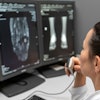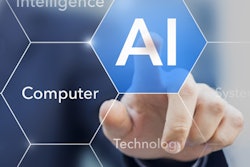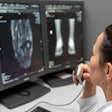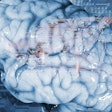Dear Artificial Intelligence Insider,
The potential of artificial intelligence (AI) has generated much excitement in radiology, but crucial real-world issues need to be addressed to facilitate widespread and successful adoption of AI. Consultant Michael J. Cannavo, the PACSman, has authored a new series of articles for AuntMinnie.com that goes beyond the hype and delves into the practical considerations for AI.
His first article -- this edition's Insider Exclusive -- explores the issues surrounding reimbursement and the challenges healthcare institutions face in justifying investment in AI technologies.
Proper validation of radiology AI algorithms must be performed before they can be deployed clinically for image analysis tasks. However, much work still remains to be done on this front, according to an article published recently in the Korean Journal of Radiology. A team of researchers reviewed recent radiology AI studies in the literature and found that only 6% reported testing their algorithms on external data. What's more, none met the recommended criteria for clinical validation of AI in real-world practice.
In other AI news, breast screening AI software was found to detect cancer on screening mammography as well as an average radiologist on nine different study cohorts. It did not, however, outperform the best radiologists in the studies.
The rapid development of AI technology in radiology applications has elicited concerns over how to ensure its safe and appropriate use. In response, radiology organizations around the world are working on statements regarding the ethics of AI.
Last week, seven prominent radiology and imaging informatics societies from North America and Europe published a 34-page draft document that details the ethical issues arising from three main radiology AI topics: data, algorithms and trained models, and practice. In February, the Royal Australian and New Zealand College of Radiologists (RANZCR) published a draft version of its own on ethical AI guidelines, sharing its set of principles aimed at guiding AI technology in medicine, particularly for clinical radiology and radiation oncology.
Not surprisingly, AI was once again a prominent topic at the recent European Congress of Radiology (ECR) in Vienna. We have video interviews with Dr. Erik Ranschaert, PhD, on AI training for radiologists, Dr. Hugh Harvey on validation of AI, and Dr. Elmar Kotter on the key issues facing radiology AI. Researchers also described in Vienna how a deep-learning algorithm could provide automated diagnosis of several neurological diseases on routine MRI scans, predict survival in patients with glioblastoma based on postoperative MRI scans, help radiologists of all experience levels to improve breast cancer detection, and enable real-time patient dose estimates on CT exams.
Certified imaging informatics professionals (CIIPs) can best prepare for implementing radiology AI technology by building an advanced IT infrastructure, said Dr. Paul Chang during a webinar held by the Society for Imaging Informatics in Medicine (SIIM).
Have an idea for a story you'd like to see covered in the Artificial Intelligence Community? Please feel free to drop me a line.




















